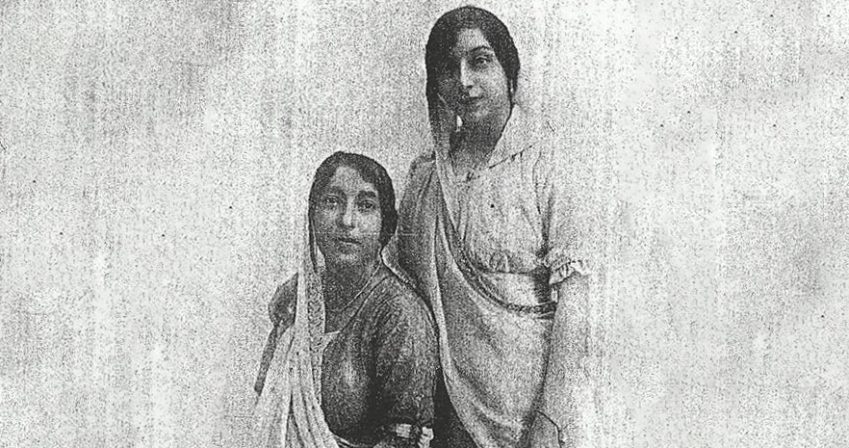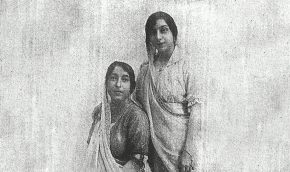First Indian woman to be called to the Bar and first woman barrister to practise in India
Women in Law
- Introduction
- Timeline
- Joyce Bamford-Addo
- Marion Billson
- Jill Black
- Elizabeth Butler-Sloss
- Sue Carr
- Eugenia Charles
- Lynda Clark
- Freda Corbet
- Coomee Rustom Dantra
- Leeona Dorrian
- Heather Hallett
- Frene Ginwala
- Rosalyn Higgins
- Daw Phar Hmee
- Lim Beng Hong
- Dorothy Knight Dix
- Sara Lawson
- Elizabeth Lane
- Theodora Llewelyn Davies
- Gladys Ramsarran
- Lucy See
- Evelyn Sharp
- Victoria Sharp
- Ingrid Simler
- Teo Soon Kim
- Ivy Williams
- The Significance of the Sex Disqualification (Removal) Act 1919
- Podcasts
Home › Women in Law › Pioneering Women in Law › Mithan Tata
Mithan Tata/Lam
1898 – 1981
Mithan Tata was the first woman called to the Bar at Lincoln’s Inn on 26 January 1923. She was one of the first women to join one of the Inns of Court after they were opened to women in 1920. She was also the first Indian woman to be called to the Bar and the first woman barrister to practice in India. Not only a successful barrister, Mithan Tata was also a campaigner for women’s rights.
Mithan Tata [also known as Mithibai] was born on 2 March 1898 in Maharashtra in west India. She was the daughter of social reformer Herabai Tata, and her husband the industrialist Ardeshir Bejonji Tata, who was part of the extended family of Jamsetji Tata – founder of the Tata group of companies, one of the largest Indian multinational conglomerates. Lam spent her childhood in various parts of India, including Ahmedabad, until the family moved to Bombay in 1913 where Ardeshir managed a textile mill. The family were of Parsee (Zoroastrian) background – a religious faith that originated in Persia. Lam attended Elphinstone College in Bombay from 1914 where she was one of only fifteen women enrolled in the school. She was awarded the Cobden Club medal for the highest marks when she graduated.


Herabai and Mithan Tata, 1919
In 1911, Mithan Tata and her mother met the British suffragette Sophia Duleep Singh in Kashmir. This meeting inspired and encouraged Mithan’s mother to become more involved in the women’s suffrage movement in India.
In 1919, Mithan and Herabai Tata moved to London to give evidence before parliament on the reasons why Indian women should be given the vote. They held two meetings with MPs in the House of Commons, and travelled across the UK to hold meetings to gain public support for their campaign.
As India was part of the British Empire, it was up to British politicians to decide whether women in India could be given the vote. In 1919, the British Government decided to give some Indian men the vote but deliberately excluded women. They allowed a clause, however, that allowed Indian provinces the right to decide if they wanted to give women the vote. Following further campaigning by Mithan and Herabai Tata, their province of Bombay gave women the vote, on the same terms as men, in 1921.
Mithan Tata remained in London, with her mother, until 1923. She studied for a Master’s degree at the London School of Economics and graduated with an MSc in Economics in 1923. She also joined Lincoln’s Inn on 13 April 1920, aged 22, one of the first women to do so after the Inns of Court were opened to women in 1920.
She was the first woman called to the Bar at Lincoln’s Inn on 26 January 1923, along with Mercy Ashworth, but because she was admitted three days before Ashworth, Mithan Tata’s name was called first.
Having been called to the Bar, Mithan Tata returned to India and enrolled in the Bombay High Court, where she was the first woman barrister. She married Jamshed Sorabsha Lam, a solicitor, in 1933. They had two children.
Mithan Lam continued to campaign for social change in India, alongside her legal career. She joined the Bombay City Women’s Council in the 1930s and worked to provide relief to the Matunga Labour Camp, a slum in one of Bombay’s northern suburbs. She was also a member of the All-India Women’s Conference (AIWC) which was a leading women’s organisation in India. Lam was president of the AIWC from 1960 to 1962. Through this role Lam edited its journal Roshni.
Lam had a distinguished career in India. She was Professor of Social Legislation at the Tata Institution of Social Work from 1928 to 1934, and a member of the commission to amend the Parsi Marriage and Divorce Act.
She was the first Indian woman to be made Sheriff of Bombay, in 1947, and chair of the Government of Bombay Refugee Relief and Rehabilitation Committee from 1947 to 1950, providing support for refugees from the partition of the Indian subcontinent.
Lam was an Indian delegate at various United Nations seminars, and appointed Justice of the Peace in 1971. She was awarded the Padma Bhushan, the third highest civilian award in India, in 1961. Lam died in 1981, aged 83.
Mithan Tata/Lam was one of the first women, and the first Indian woman, to be called to the Bar in the UK. A highly successful barrister in India, activist and role model for others, Mithan’s most significant importance was her role in the campaigns for Indian female suffrage, alongside her mother, during their stay in Britain in 1919.